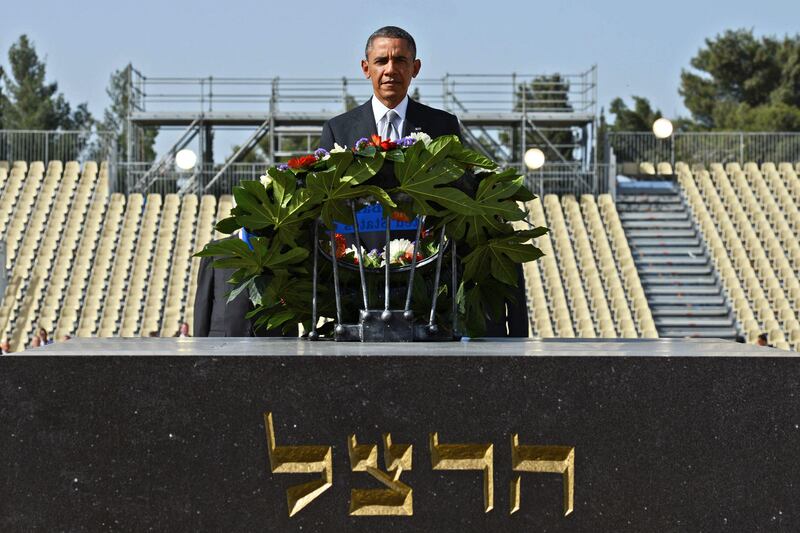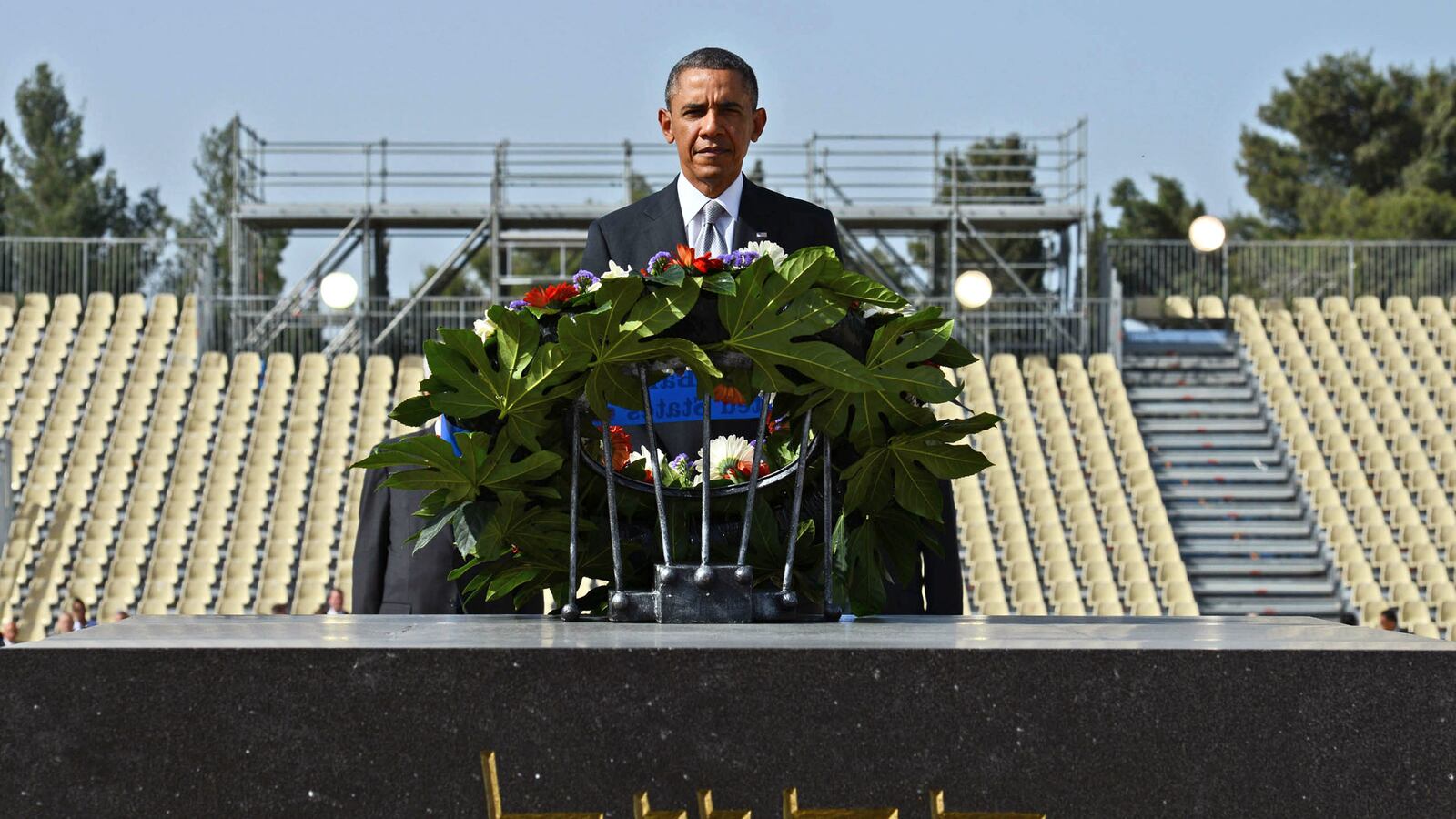As of this writing, the Obama-Israel lovefest has worked beautifully. The President of the United States can update the traditional “Veni, vidi, vici,” I came, I saw, I conquered, with a more modernist version: “I came. I spoke. They swooned.”
It has been an extraordinary two days in the Holy Land. Jerusalem is eerily quiet, with the city in lockdown and few people daring to drive for fear of traffic snarl. One of the big heroes of the hour is “Waze,” the Israeli technology that spits out real-time traffic updates to drivers who can also input updates. When Richard Nixon and Jimmy Carter visited in the 1970s, Israelis massed into Jerusalem, encouraged by the government, hoping to get a glimpse of the President, eager to thank him for his support. Part of today’s hyper-secure blanket around chief executives entails discouraging people from getting anywhere close as security cordons surround the security cordons. Noticing the powerful silence that resounds in a usually bustling city when the cars are still, my son Yoni exclaimed: “This is like Yom Kippur in Jerusalem today…except we can eat!”

Amid the symphony of symbols, President Barack Obama succeeded. At some point during his first term, he realized that Israelis will respond more to positive than negative reinforcement, that progress in the Middle East depends on Israelis feeling safe, which means feeling loved by America’s President. His itinerary corrected the distortions of the Cairo Speech. Thursday’s stop at the Israel Museum’s Shrine of the Book celebrated the three-thousand-year-old relationship between Jews and their homeland, authenticated by archaeological evidence. Friday’s stop at Herzl’s grave honored Zionism’s founder, who died decades before the Holocaust, rooting the Zionist story in the romantic liberal nationalist movements of the nineteenth century.
Obama’s rhetoric reinforced the imagery, as he acknowledged “the bonds between our countries” and “the ancient history of the Jewish people.” He celebrated Israel as “a nation of museums and patents, timeless holy sites, groundbreaking innovation,” saying, “only in Israel could you see the Dead Sea Scrolls and the place where the technology onboard the Mars rover originated at the same time.”
Israelis responded rapturously. Prime Minister Benjamin Netanyhau and President Shimon Peres were extraordinarily gracious, bringing new meaning to the Jewish value of Hachnasat Orchim, welcoming guests. The Hebrew daily Yediot Achronot ran a front-page column, in English, welcoming the president, and ending by exclaiming “God Bless America.” One of the headlines ran with the English word “YES” followed by “Ani Kan,” which sounds in Hebrew like “Yes We Can,” but meant “Yes I’m Here.” The ultra-Orthodox fellow who sold my 12-year-old son Aviv tefillin (phylacteries) for his upcoming Bar Mitzvah in Mea Shearim on Thursday said, “You know, Obama’s not so bad. At first I worried, now I see he is all right.”
For Israelis, the visit culminated Thursday evening with Obama’s big speech at the Binyanei Ha’oma Convention Center. Perhaps the most poignant part of his speech was his vivid, effective personalization of the Palestinian cause, when “going off script” he told of meeting young Palestinians, and saying to tremendous applause: “If any Israeli parent sat down with those kids, they’d say, I want these kids to succeed. I want them to prosper. I want them to have opportunities just like my kids do.” That is the kind of human bridge-building these foreign trips with all the hoopla can produce.
That riff allowed Obama to start spending the political capital he had earned in the previous 28 hours or so. His theme that “peace will have to be made among peoples, not just governments,” could have been spun into a critique of the Oslo Peace Process, which was far too top-down. But, in fact, his message that “peace begins not just in the plans of leaders, but in the hearts of people” combined with his call to the young—“you must create the change” because “political leaders will never take risks if the people do not push them to take some risks”—proved that part of why he came to Israel was to do an end-around, circumventing Netanyahu, the duly elected and re-elected Prime Minister of the state of Israel.
Unfortunately, but typically, the loudest sour notes came from the Palestinian side, including various flag burnings, two rockets to Sderot, and one heckler during the President’s speech. But Obama, in command, feeling comfortable, laughed off the interruption, and dismissed the trouble. Obama’s lovefest was a hopefest, trying to cool the Middle East caldron with some New World optimism. Tomorrow we can assess how realistic his diagnosis and prescriptions were. Today, let’s just enjoy Dr. Obama’s elixir of hope and love, hoping it can change the Palestinian-Israeli dynamic as magically as he was able to change so many Israelis’ attitudes towards him.





